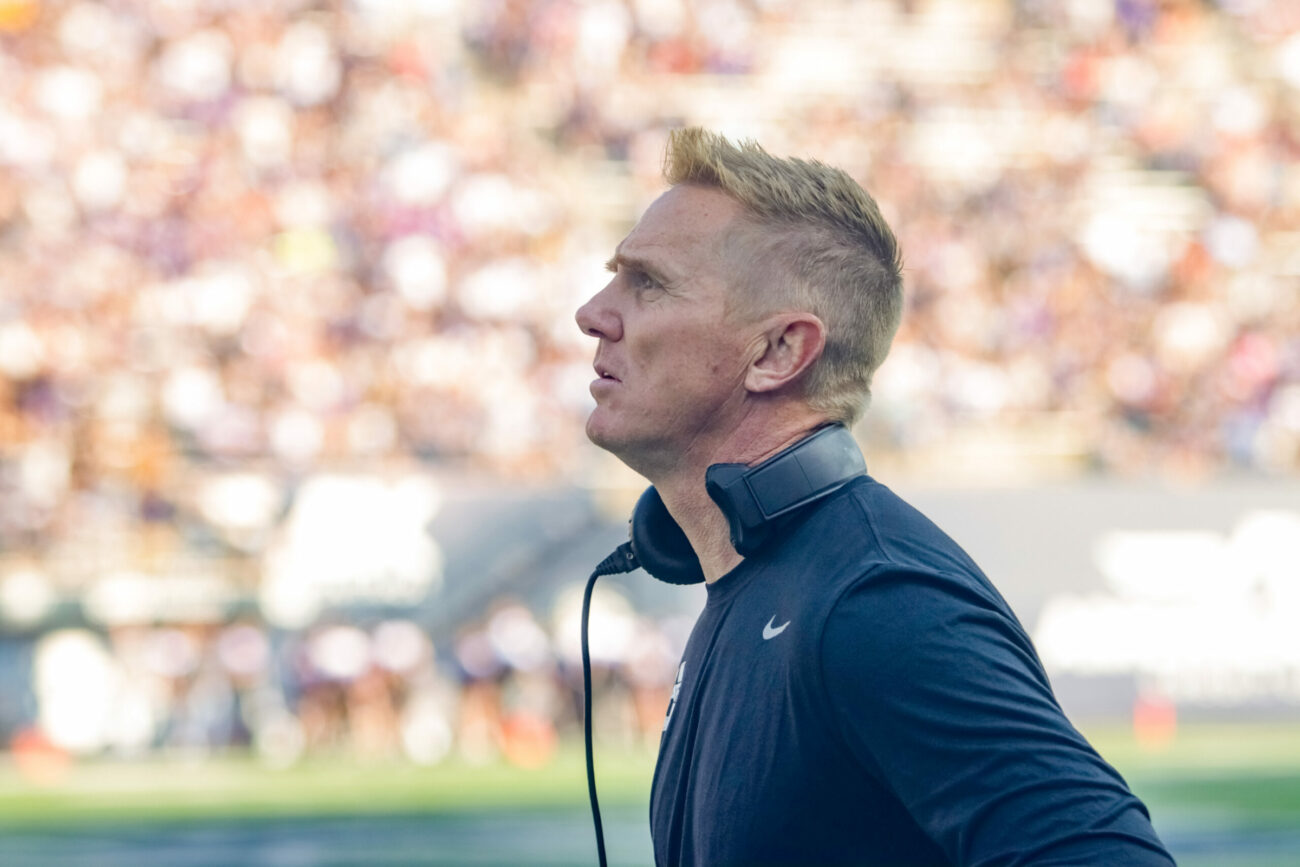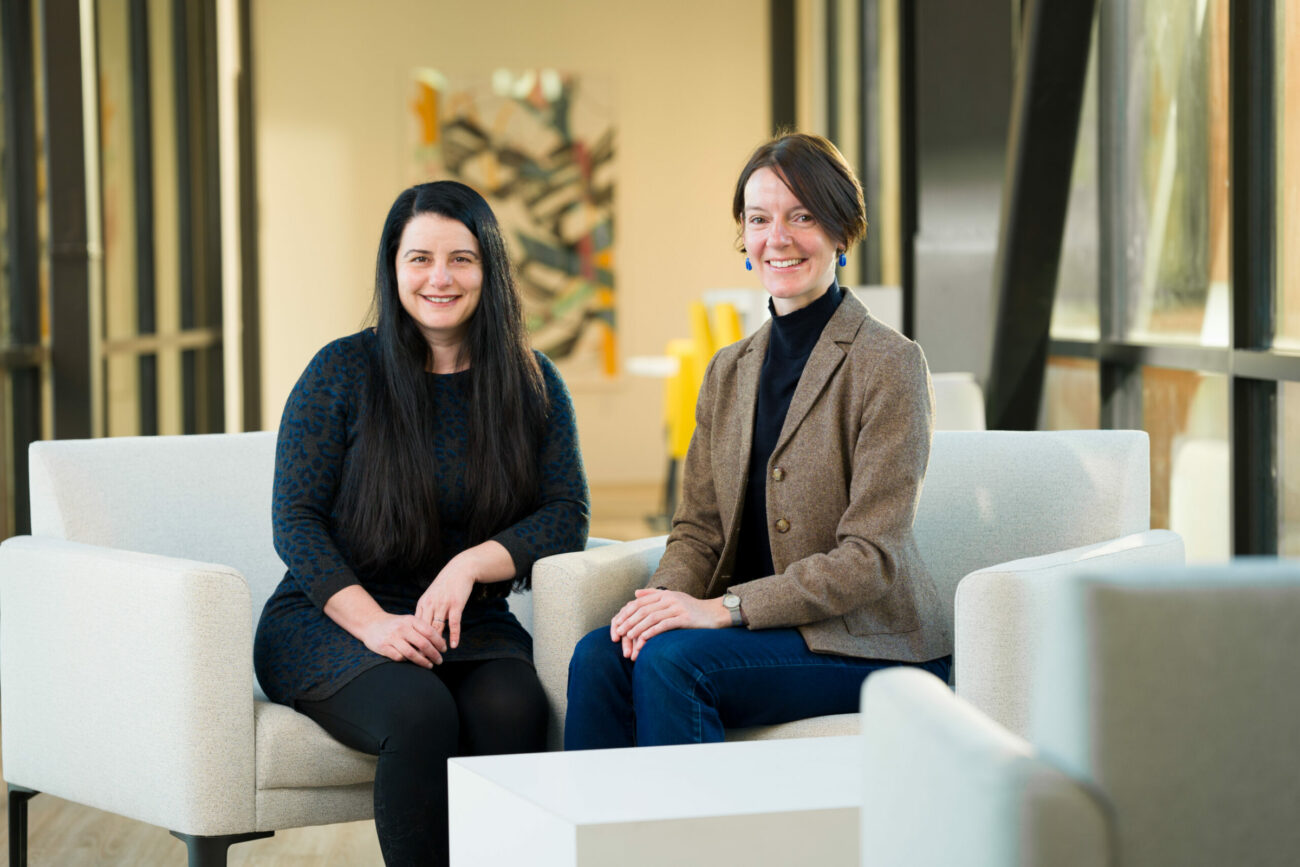A Table to Fill
I promised myself I wouldn’t talk about the food. At least I wouldn’t foodie-fuss the meal for the guests. Nor the wine picks. Eat the grub; drink the grapes. Let them speak for themselves. The good ones come through on their own.
Author Rick Bass ‘79 was back in Logan for a reading and coming to dinner at my house to discuss, or not, his latest book, The Traveling Feast: On the Road and at the Table with My Heroes. Thematically, our dinner design was set by his book—around a table, and people with something to say. A plagiarist’s dinner. Bass had cooked individual dinners for 14 or so of his literary heroes, among some of the finest word savants, while also hoping to imbibe in their ideas about literary mentorship and how the hell they do what they’ve done so well. Write themselves, that is, but also how they helped him become a writer with 32 books and something to say.
So, a repeat at my dinner table, easy enough. Talk about the book and mentorship. Or not, which often was how Bass’s book moved in the moments.
The problem was my favorite aunts. My favorite aunt stories are all food stories. Food magic is in Italian aunt blood, but my memories are about food awakening, about how passions boil around food. They are about how food-fashioned brains match tastes, smells, settings, moods, contexts, and then send all synapses firing maniacally at the pungent inhale of browning garlic, at the smoky acridity of charring Oaxacan chiles. I am genetically wired to talk food.
My cousin posted a picture on Facebook not so long ago of a table, a crackled old beast with a ceramic top edged in embossed flowers and genealogical might. “Any of the cousins remember this,” he asked? I didn’t remember the flowers; I remembered the flour, not flowers, and aunts, not cousins—aunts in flowery aprons tossing flour through and on and into handmade, knife-cut pasta on Grandma’s table. Rolling pins and spreading dough, dust clouds everywhere, and love. Always love cooked in. Sunday, Sunday, Sundays.
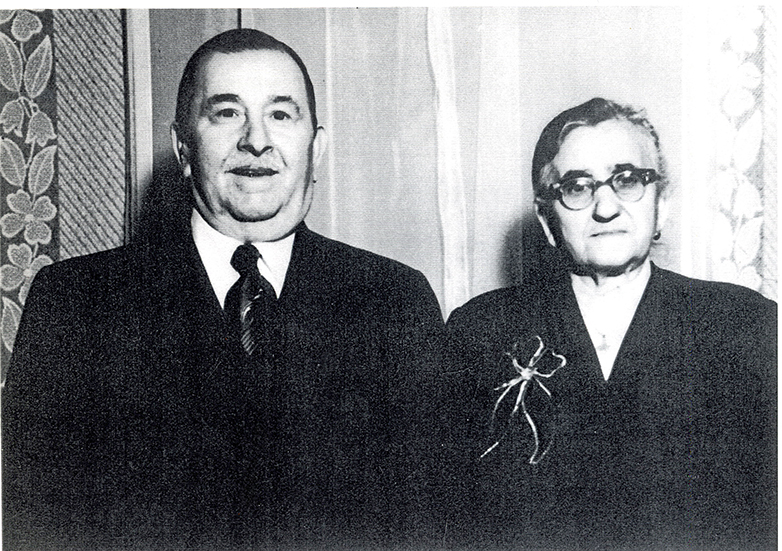
The author’s grandparents.
I don’t remember who brought that memory deeply home to me. A definite push came at age 40 from author Jim Harrison, known mostly, and sorry to say, as a novelist, who grabbed me by the tastetosterones in the early ‘90s in his meat-manly Esquire column, “The Raw and the Cooked.” Burton Anderson’s book Treasures of the Italian Table reeled seminal Italy back in, as did long talks with an auntie triumvirate—Concetta (my godmother), Maria (Mary), and Antoinette (Toni). Talks about the slow-heat evolution of fresh ricotta, a risotto’s patient moodiness, and about l’uccello barone, my grandmother’s endearing Abruzzese term, (very) loosely translated to “the big rooster” or, the big shot. My beloved Dad. My Dad, one of 12 siblings, loved aunt Evelynn’s risotto, served at regular Vitaliano lunch gatherings.
So, Rick Bass’s interviews and chapters, and now Bass himself at my own dinner table, lit shared across-boards passions, including shared author-love and mentorship reverence, some of it much less direct on my end. The pope, Denis Johnson, on the top of my top-shelf reads, foremost and early with Jesus’ Son. Jim Harrison, often and always. Peter Matthiessen, introduced to me by our mutual mentor in passion purity, USU’s own life-savant professor, Tom Lyon. A photograph on Gary Snyder’s wall and a photograph on my office wall, both jarring memories of a tragic Logan avalanche. Bear-man Doug Peacock—Hayduke himself—a shared favorite Bandol and an almost-shared Yellowstone haul into bear fantasies. Barry Lopez and Barre Toelken, another USU maestro and his mentee. My mentors. My heroes. They who evoked passions.
I’m name dropping, I know. A reminisce, for me for certain. But that’s my take on what Rick Bass had, in part, lived in his book. No, not just a look back for a dreamy fondness reminisce. A look back, while deep into one’s career, to come home—a contemplative coming home as a respectful coming to terms with how we move into life. Not through life. Into life. Who is it who slapped awake the slumbering-in-geology poet-to-be? Who made a cliché of youth take an artful turn to the Montana wilds and wolves and words to capture them, for us? And, perhaps most important of all, how could he, Bass, carry mentorship forward, to nurture his own students as they cut their way out of him, out of us, out of stuff already said, and into themselves?
In the book, alas, he is mentored, again, on that point by Snyder, who shakes up Bass’s sound altruistic sense of the situation: “But it’s never really been that way, has it? The spirit that makes great art has always gone its own way.” Yes. And no, because we move together and grow together and support each other, even when going our own ways. Right? Yes?
Everyone, delve in. Take a bite. Tell that story. Tell your story.
So, Bass did two things in each chapter of his book, and I told you part one: he interviewed his mentors. But part two was not an addendum. It was a different track, perhaps what Bass was really considering as his path forward. He was in a thank-you mode, certainly, as he cooked for his writing mentors, but, as important as those mentors were to him, he urged a responsibility to provide opportunities down the line. To give back. As part of each chapter, he had invited writing students, usually just one, to come with him, help him cook, and get into the thick of matters to come.
Our Logan dinner had the markings of that repeat too. The invite list, eight total, mixed writers young and old, and fans young and old. What to cook? Bass, with meat-man Harrison and maybe his Texas roots in his blood (and blood is the right word here), had his go-to hand-harvested elk backstrap as comfort food backdrop for his book meals. I was going to do a simple risotto. Because. A simple pasta, fresh, as bloodline would suggest. Some basic appetizers. Comfort foods to elicit table-gathered stories during the calm of the evening. Simple. Simple, no food talk. Then someone asked about culatello, and the passions of my genetic pooling unleashed.
We talked about culatello. Lardo. Olives. Cheeses from here, there. A last-minute frittata with pesto—representation from the chickens out back. The risotto—no, not the risotto; we talked about making the stock for the risotto. Water, bones, time turning into food crack. Pasta, but pasta with just egg yolks and flour—six yolks/a cup of flour. Rich, yellow arterial death. We were on. Books flying around the table. Gary Nabhan’s Songbirds, Wolves and Truffles came for a moment. Talk, talk, talk. Wine with a nod to Peacock, a Bandol. Wine toast for Harrison, who had died two years before almost to the day. Balsamic tradizionale, 25 years old, then the 35-year-old. Passions, and not just me, OK? I don’t mean enthusiasm, or entertainment, or humor, or wit. I’m talking about discussions on how you draw breath or what’s in your blood, or your history, your self. Everyone, delve in. Take a bite. Tell that story. Tell your story.
Then our young writer, quiet to that point, spoke up.
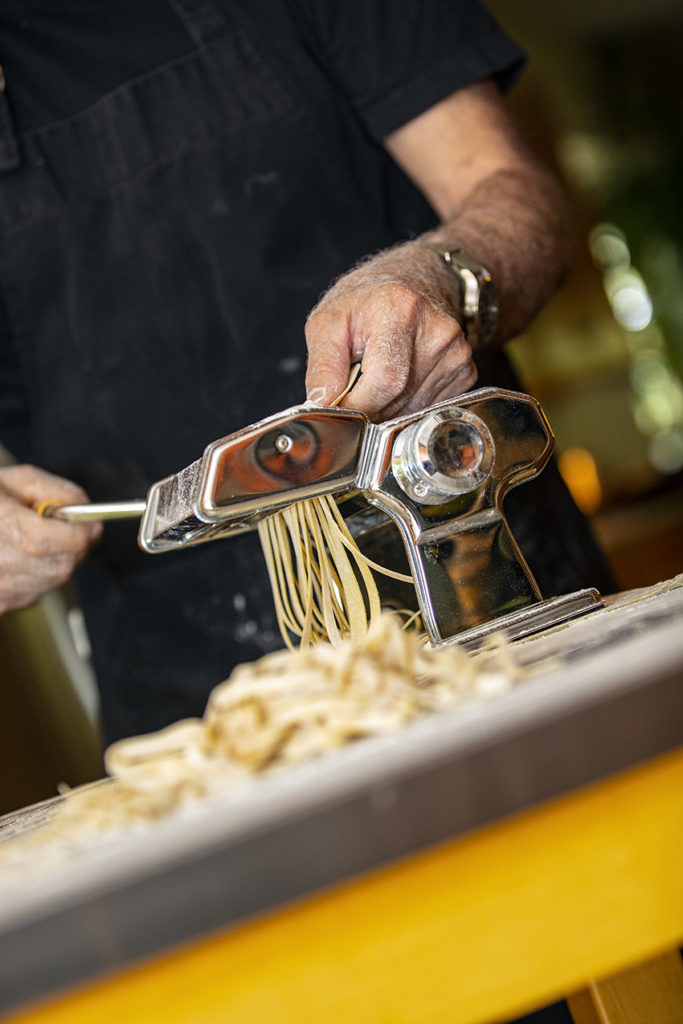
Near the end of this full-sails, open throttle, stampeding-forward dinner, with stories and magic and tangential explosions of connectedness, one person—a graduate student—told this electrifying story that silenced us all. It wasn’t a piece. Not an essay, not something to ponder. It was an urgent, brightly detailed, colorful, mystical, mythical tale—a moment about a moment. There was a dead whale and a Buddhist nun, and lost/found, and still searching for the end … Man, a story, from someone in a zone that we could feel more than understand.
Rick Bass sat there just staring, mesmerized. I suspect THAT is what he wanted—to look back on his life and see that he had an impact on someone, young writers in his case, but someone exploding forth. Someone going, charged by life. He sat there, shaking his head, yes, yes, yes. Listening, intently, and maybe seeing something of himself. The learned, who once needed to learn, seeing a learner come of age?
Much too early the next morning we met with a room of student writers. Bass was queued into every question. But it had been a long evening, noted that morning only by two questions from Bass: (1) “Does anyone have any aspirin?” (2) “Does anyone know the name of the Billy Collins poem with Marco Polo, Marco Polo in it?” One Google-minute later, we find that the poem is called “Hangover,” and Bass read it, beautifully. No, perfectly, which means he read it with the staggered non-enthusiasm of someone who had … missed some sleep. But he was all in for every question, every person, ready to offer 100 percent of himself to move them onto a path.
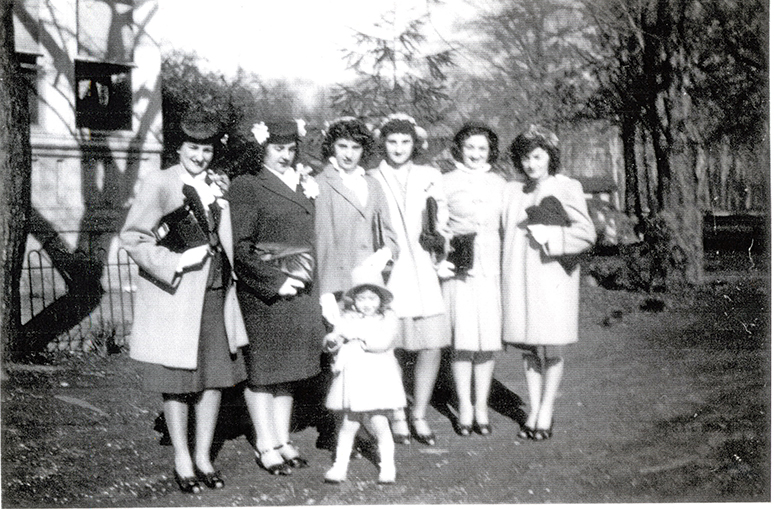
The author’s aunts.
After one student question, Bass paused, and paused, a long time for humans and silence to not-mix. Looking-down seconds, long enough for the student—an undergrad who had asked a complicated question—to begin backtracking: “Ah, maybe that wasn’t very well put. I’m not sure …” No, no, no, Bass cut in, with immediacy. “It was a great question! So great that I want to think about it.” He gives the question time, the answer time, and the student time, because that’s what he does. Give back.
About a month after the dinner with Bass and clan, I’m at a Montana cabin that skirts the northwest edges of Yellowstone. Harrison country. I brought up Peacock’s name on a hike near the Lamar River today: snow-waylaid plans from 20 years ago to go up Specimen Ridge then south, off trail into bear Never-Never country in a late September with USU bear biologist Barrie Gilbert and two friends. “We were headed up there,” I tell my friend’s grandkids, thinking with reverence of then. But, today, a now-bear brought that long-ago memory back. A stranger in full camouflage, quick-hiking past us, rattled, had just seen a grizzly. “Just back the way you’re headed,” next little creek.
Well, then. A little higher heart hum, a sharper eye on the close cover, a more exactness of step. But, no bear this time.
We live in our stories, sometimes our old stories, sometimes in the ones we’re hoping to live, or about to live. And now it’s dinner time at the cabin. I’m thinking Harrison—raw world and getting ready for food prep. Tonight, a young rookie cook who can’t craft her own pourover cup of morning is being pried into helping with dinner by her dear aunt. OK, girl, simple. Slice the dried apricots, like this. Or, yes, like that. That’s the fired cumin attacking the kitchen calm, piles of it on softening onions. Breathe it inside of you, laugh or don’t laugh at the jokes your pop—my old Philly buddy—is telling. Again. And grow to love the memories. Or grow from the memories, the stories that might take you to your own passions someday. Here they are to share, our gifts to each other because surely they don’t live alone, particularly when there is a table to fill.
By Tim Vitale ‘91




